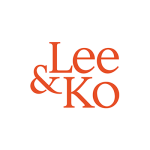There have been three significant recent developments in Korea's international trade arrangements. The first is the agreement to amend the Korea – US Free Trade Agreement (KORUS FTA). Addressing trade deficits with major partners and updating existing trade agreements has been one of the priorities of the current US administration. President Trump has asserted that the US trade deficit in goods with Korea has increased and that it has had a negative impact on US workers and businesses due to the KORUS FTA.
The two countries reached an agreement in principle on the general terms of amendments and modifications on March 27 2018. The revised agreement addresses issues related to investment, tariffs, trade in automobiles and trade remedies. The agreement is currently being finalised.
The second is the Korean government's New Northern and Southern Policy. President Moon Jae-in is seeking to diversify South Korea's external portfolio so as to build a more balanced diplomacy. The New Southern Policy and New Northern Policy form the diplomatic strategies of President Moon's new economic map for the Korean Peninsula. Such policies aim to strengthen diplomatic and economic ties between the regions.
|
|
Korea has devised a new trade strategy with the aim of becoming the world’s fourth largest exporter by 2022 |
|
|
The Association of South East Asian Nations (ASEAN) has been the main focus of the New Southern Policy. In recognition of ASEAN's significance, President Moon announced the New Southern Policy in November 2017 during a visit to Jakarta, Indonesia, and outlined the so-called 3P vision to build a people-centred, peace-loving, and mutually prosperous community.
In tandem, President Moon is also moving to build on strong ties with Russia and the Eurasian countries at large under the New Northern Policy. The policy includes increased mutual economic exchange between Korea and the Eurasian countries, especially Russia. The nine-bridge strategy calls for cooperation with Russia in the nine sectors of gas; railway; port; electricity; arctic shipping (North Pole Route); shipbuilding; job creation; agriculture; and fisheries. During President Moon's recent visit to Moscow in June 2018, the two countries agreed to complete domestic procedures to launch a Korea-Russia FTA in the services and investment sectors, and to push forward joint research in the electricity and gas sectors for the purposes of forming trilateral cooperation among the two Koreas and Russia.
The third significant development is a recent amendment that will influence the current practices of the Korea Trade Commission (KTC). The KTC is responsible for investigating and determining injury to the domestic industry caused by dumped or unfairly subsidised imports, and for recommending the imposition of anti-dumping tariffs or countervailing duties to the Ministry of Economy and Finance, if it finds such injury. Since its establishment in 1987, the most commonly triggered trade remedy investigation remains the anti-dumping measure. As of this submission, there were 159 applications for anti-dumping investigations per product, and 114 products have been subject to anti-dumping duties. By country, the most frequently targeted country in anti-dumping investigations is China, followed by Japan, the US, and the EU member states; and by product: chemical products, followed by paper/wood products, machinery/electrical products, and steel products. In recent years, an increasing number of applications are filed for investigations into unfair trade practices which infringe on intellectual property rights. The KTC has repeatedly announced that it will reinforce the efforts of investigations against unfair trade practices.
Pursuant to a recent amendment to the Detailed Regulations on Management of Application, Investigation, and Determination of Imposition of Anti-Dumping Duty and Countervailing Duty, effective July 12 2018, all companies shall submit their responses to the KTC's questionnaire in Korean, unless the use of another language is allowed under an FTA.
The US: a bumpy road
US section 232 on steel and auto/auto parts
On August 29 2018, four months after the quota allocation was imposed on Korean steel imports, President Trump signed a proclamation relieving Korea of steel export quotas, which the US companies can apply for product exclusions based on an analysis that there is an insufficient quantity or quality available from US steel or aluminium producers. Previously, effective May 1, Korea was exempted from tariffs imposed on steel imports under section 232 of the Trade Expansion Act of 1962, but instead, imports of steel products into the US are subject to a product-specific quota equivalent to 70% of the average annual import volume of such products during the period of 2015-17.
Korea is the fifth largest auto exporter to the US after Mexico, Canada, Japan, and Germany (International Trade Centre's Trade Map). The US Department of Commerce (USDOC) is investigating whether imports of automobiles and automotive parts into the US threaten national security, as defined in Section 232.
A Korean delegation, comprised of government officials and representatives of the automobile industry, attended the public hearing on July 19 and 20 2018 and requested an exemption, citing a security alliance and a bilateral trade deal involving the recent renegotiation of the KORUS FTA that addressed the US concerns on automotive trade. At the time of writing, it was unclear whether Korea would receive an exemption should the USDOC determine that automotive imports harm US national security.
WTO disputes
Of about 560 disputes which have been initiated since the WTO was established in 1995, Korea has been directly involved in 37 cases, 20 as a complainant and 17 as a respondent. In the past five years, all five disputes directly involving the US were filed by Korea as a complainant against the US. As regards the case involving large residential washers from Korea, an arbitration procedure to determine the amount of suspension of concessions or other obligations (aka level of retaliation) is in progress. The dispute concerning oil country tubular goods from Korea is currently in the implementation stage, and the US has until January 12 2019 to comply with the rulings of the WTO's Dispute Settlement Body.
Complaints regarding safeguard measures on imports of crystalline silicon photovoltaic products, and imports of large residential washers, and the use of facts available are currently pending.
China talks
When the Korea – China FTA took effect in December 2015, it only opened services and investments on a restricted basis. Negotiators agreed to have follow-up negotiations within two years to discuss higher levels of liberalisation. President Moon and President Xi Jinping agreed to hold the follow-up sessions after a meeting in Beijing in December 2017.
China's service industry was estimated to be worth around $5.6 trillion in 2016, making it the second largest in the world. By strengthening the legal framework for expanding the two countries' services market and investment opportunities, the Korean government plans to support local companies' efforts to enter the Chinese market in promising service sectors, including tourism, culture, finance, and health care, while seeking ways to enhance the investor protection measures.
The two countries engaged in the first round of FTA follow-up negotiations in March, and the second round of talks in July 2018.
Dismantling regional barriers
The 23rd round of negotiations for the Regional Comprehensive Economic Partnership (RCEP) took place in Bangkok, Thailand, from July 23 to 27 2018. The RCEP is a mega FTA among the 10 ASEAN member countries, South Korea, China, Japan, Australia, New Zealand, and India. The RCEP covers trade in goods, trade in services, investment, economic and technical cooperation, intellectual property, competition, electronic commerce, dispute settlement, and other issues. Two chapters (customs procedures and trade facilitation, and government procurement) were concluded at the 23rd round of negotiations.
|
|
Any plan for economic cooperation with North Korea is severely limited by the UN and US sanctions |
|
|
The first round of negotiations was held in 2013, and the 16 participants of the RCEP promised to reach a conclusion within 2018 at their ministerial meeting held in Tokyo on July 1 2018.
The RCEP will have the potential to deliver significant opportunities to Korean businesses and consumers. The RCEP has a significant meaning for South Korea in that it covers key parts of the government's New Southern Policy, such as the ASEAN region and India. In addition, the 16 RCEP participating countries account for almost half of the world's population, over 30% of global GDP and over a quarter of world exports.
The 13th round of negotiations on an FTA between Korea, China, and Japan was held in Seoul from March 22 to 23 2018. In this round of negotiations, areas such as trade in goods, trade in services, and investment, amongst others, were discussed.
Given the economic power and competitiveness of the three countries, it is expected that the substantial economic integration will bring tremendous benefits not only to the region, but also to the world. Korea is approaching the negotiations in line with Korea-China FTA and the ongoing RCEP negotiations so as to maximise the benefits and interests of Korea.
Trade policy and foreign investors
Trade matters immensely to Korea's economic growth. In response to the growing trade tension and risks and changing trade environment, Korea has devised a new trade strategy with an aim of becoming the world's fourth-largest exporter by 2022. The key strategies include advancing trade relations with the US and China, the New Southern and Northern Policy, and taking a lead in digital trade.
Enhancing economic relations with the G2 countries (the US and China) and the New Southern and Northern Policy is part of the government's efforts to stabilise long-term relations with the US and China, and at the same time diversify export markets and key export items. Policies of strategic economic cooperation, such as the New Southern and Northern Policy, may influence the reorganisation of global value chains and have a bearing on corporate decisions on international production sharing and foreign direct investment.
Additionally, in response to a global race to transform to innovation-powered economies provoked by the fourth industrial revolution, Korea plans to pursue policies aimed at digital trade, setting up an environment where data can move freely across borders. Korea aims to pursue a mega FTA focused on digital trade with like-minded countries.
As explained above, it should be noted that the most commonly imposed trade remedy measures remain as anti-dumping measures, and the most targeted country is China. It is also noteworthy that the KTC has taken a stance to enforce investigations against unfair trade practices infringing on intellectual property rights. Foreign respondents to the KTC investigation must be aware that they shall, in principle, submit their responses to the KTC's questionnaire in Korean, as of July 2018.
North-South relations
While talks between the US and North Korea are deadlocked over differences about how denuclearisation should proceed, the two Koreas have been laying the groundwork for improving their relationship in multiple directions. They recently held another periodic reunion meeting of families that were separated during the Korean War, and President Moon is expected to visit North Korea for his third summit meeting with Kim Jong-un in September. Moreover, while inter-Korean economic cooperation has been in stalemate since the Kaesong Industrial Complex was suddenly shut down in 2016, there are efforts to resume the operation of the Complex subsequent to the summit meetings between the two Koreas and the US with North Korea.
In addressing a speech on Liberation Day, President Moon proposed setting up an East Asian Railroad Community, echoing the coal and steel community that helped pave the way for establishing the European Union and envisioning that economic cooperation through closer railway, natural resources projects, and joint economic zones can bring peace and prosperity to Northeast Asia.
Notwithstanding the significance of inter-Korean economic cooperation, the key to its success is a permanent settlement to the denuclearisation of the Korean Peninsula. As President Moon stated in the speech, '[p]eace is the economy; peace and the economy are synonymous'. Any plan for economic cooperation with North Korea is severely limited by the UN and US sanctions, which limit trade with the North. The US has underlined that sanctions relief and the signing of a peace treaty with North Korea will not materialise before the North completes denuclearisation. Thus, global companies must be aware that inter-Korean economic cooperation is pursued in coordination with the international community's position towards economic sanctions on the North.
Furthermore, in an effort to institutionally stabilise economic cooperation, discussions are under way to establish an inter-Korean FTA so as to receive international approval for tariff-free trade and to promote the opening of the North Korean economy. Under the Inter-Korean Basic Agreement and the Inter-Korean Exchange and Cooperation Act, inter-Korean trade is considered as internal transactions between the Korean people, rather than as trade between two nations. As a result, incoming goods from North Korea are not subject to import tariffs or any other surcharges when entering the borders of South Korea. As a member of the WTO, however, Korea is obliged to provide most-favoured-nation (MFN) treatment to tariff preferences granted to any country, including a non-WTO member such as North Korea.
One possible method under discussion to provide legitimacy to the inter-Korean economic cooperation plan is to conclude an FTA so that South Korea can rightfully provide preferential tariff treatment to incoming goods from North Korea. One drawback of this method may be the fulfilment of the requirement under Article XXIV:8b of the General Agreement on Tariffs and Trade (GATT), namely, the elimination of duties and other restrictive regulations of commerce on substantially all trade between constituent members, since the categories of products traded between South and North Korea are not diverse enough. Given this fact, it may also be possible to establish an interim agreement recognised under the GATT before a full-scaled FTA can be formed. Whichever direction is considered appropriate, such an FTA or interim agreement shall provide safety nets against investment risks faced by Korean companies participating in the inter-Korean economic projects.
Eurasia and Southeast Asia trade
Korea is striving for the New Northern Policy and New Southern Policy, which aim to expand cooperation with Eurasian countries as well as Southeast Asia. The government plans to mainly focus on developing an Arctic sea route by signing FTAs with Eurasian Economic Union countries, together with promoting negotiations of the RCEP and enhancing FTAs signed with Southeast Asian countries.
In particular, the Korean government agreed to accelerate the negotiations with India to enhance the Comprehensive Economic Partnership Agreement (CEPA), initiated in June 2016. In July 2018, the two countries reached an early harvest package as part of the ongoing negotiations for upgrading the existing CEPA and to enhance cooperation in various areas, such as in advanced technology in preparation for the fourth industrial revolution, trade remedy, new energy industries, and start-ups.
Connecting cities through FTAs
As a way to relieve the limitations arising from inter-state market opening, the Ministry of Trade, Industry and Energy has set forth plans to connect markets in two different cities at the level of an FTA, as part of its New Trade Strategy. For example, the level of market opening for the free economic zones of Incheon and Weihai, the two cities which were identified as model areas to promote local economic cooperation in the Korea-China FTA, may be extended to that of economic integration so as to mutually recognise economic benefits enjoyed in each city. Though the two cities are gradually strengthening their economic ties, such an integration initiative currently remains at the stage of planning.
About the author |
||

|
|
Kichang Chung Partner, Lee & Ko Seoul, South Korea T: +82 2 772 5904 Kichang Chung is a partner at Lee & Ko. His major practice area is state-to-state dispute settlement at the World Trade Organization (WTO) in Geneva, Switzerland. Kichang also advises on the legal and policy issues of the international trade. Kichang has been often selected as leading individual from Chambers & Partners and Who's Who Legal. Before private practice, he worked for the Ministry of Foreign Affairs of the Republic of Korea. In the government, he represented Korea in major disputes before the WTO. He also represented Korea as lead negotiator at the DSU review negotiations, the mandate of which is to clarify and improve the procedural law of the WTO litigation. Currently, he is advising the Korean government and global companies on various multilateral and bilateral issues of international trade. He is also representing the Korean government in pending WTO disputes. |
About the author |
||

|
|
Hyunsoo Joo Partner, Lee & Ko Seoul, South Korea T: +82 2 6386 6363 Hyunsoo Joo is a partner of the international trade practice group at Lee & Ko. She has extensive experience in the field of international trade and investment laws. Throughout her career, Hyunsoo has been actively involved in numerous FTA negotiations, trade remedy issues and WTO disputes relating to steel, chemical and electronics industries. She is known in particular for her investor-state dispute settlement expertise. Most recently, she successfully served as counsel in the second International Centre for Settlement of Investment Disputes (ICSID) claim by a foreign investor against Korea. |

